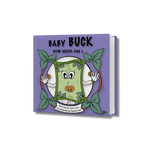You have no items in your shopping cart.
Financial literacy is an important skill for kids to learn, as it can help them understand how to manage money and make smart financial decisions as they grow up.
Here are some tips for teaching financial literacy to kids:
1. Early Age
Start early, please. The earlier you start teaching kids about money, the more likely they are to develop good financial habits. Even young children can learn about saving and spending. No doubt when it comes to money topic, all ages are welcome.
2. In a FUN way
Kids are more likely to engage with financial concepts if they're presented in a fun and interactive way. You can play games, use educational apps, or give kids an allowance and help them learn how to budget it.
3. Real Life Lessons
Use everyday situations to help kids understand financial concepts. For example, you can talk about saving up for a big item purchase or comparing prices at the grocery store. Don’t forget to always mention “How to earn Money” during the shopping time. That is the opportunity for kids to learn where moneys come from at the same time where we about to spend it. This behavior creates a good money habit to remind them that money is not easy to get, so don’t easily spend it.
4. Saving First
Teach the importance of saving. Encourage kids to save a portion of their money and help them understand why it's important to have a nest egg for the future. They should save at least 30% from their allowance.
5. Start Teach about DEBT
Discuss the dangers of debt: Explain the dangers of borrowing money, and help kids understand the importance of living within their means. Debt is a serious problem. Teach your kids to learn “How to avoid Debt?” This is one of the biggest problems in life that our kids need to learn in order to have a bright future.
6. Set a Positive Example
Always believe in “Lead by example.” Kids learn by watching what their parents do, so make sure you're setting a good financial example for them to follow. Even though, you are in a hard financial situation, keep leading your kids in a positive example. When you lead by example, you show the kids what is expected of them and inspire them to follow in your positive journey.
7. Lesson for LIFE
Make it a lifelong lesson. Financial literacy is not a one-time lesson, but a lifelong journey. It is also practice by doing, not just a theory in mind. Remember to always talk to your kids continuously about money and help them make smart financial decisions as they grow older.








